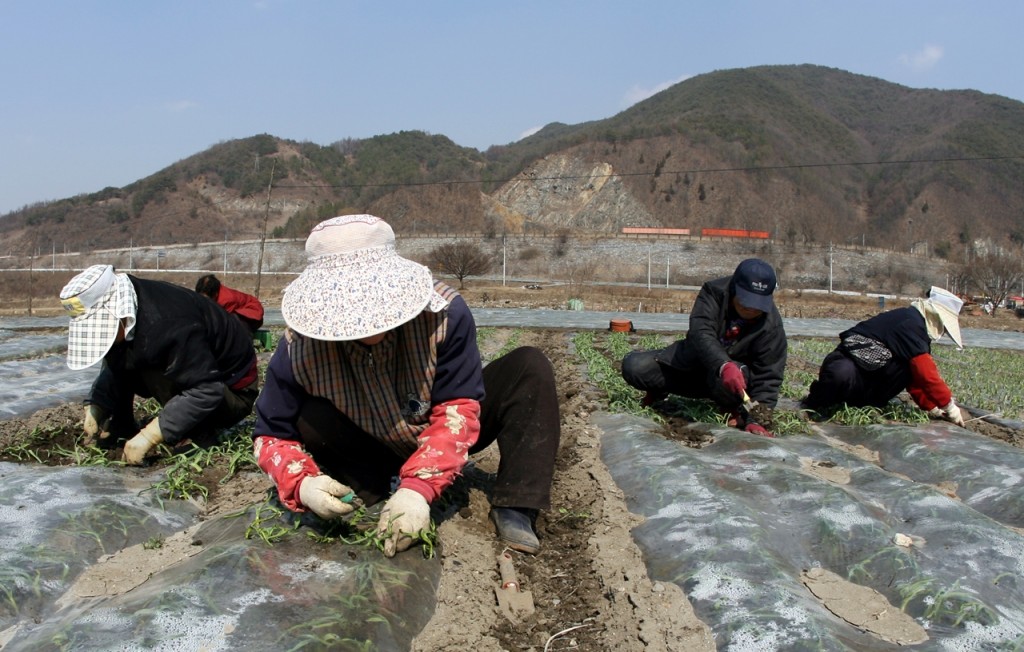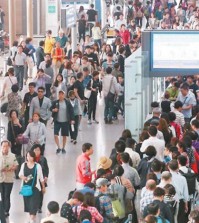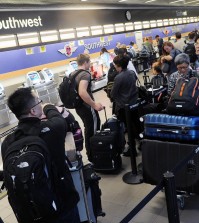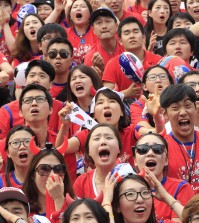- California Assembly OKs highest minimum wage in nation
- S. Korea unveils first graphic cigarette warnings
- US joins with South Korea, Japan in bid to deter North Korea
- LPGA golfer Chun In-gee finally back in action
- S. Korea won’t be top seed in final World Cup qualification round
- US men’s soccer misses 2nd straight Olympics
- US back on track in qualifying with 4-0 win over Guatemala
- High-intensity workout injuries spawn cottage industry
- CDC expands range of Zika mosquitoes into parts of Northeast
- Who knew? ‘The Walking Dead’ is helping families connect
S. Korean gov’t responds to Amnesty International migrant worker report

On Monday, Amnesty International released a report titled “Bitter Harvest.” The group said farm workers from Vietnam, Cambodia and Nepal are frequently compelled to work in inhumane conditions and lack the means to escape their situation. (Newsis)
By Kim Young-jin, Kim Hyo-jin
The South Korean government said it is making efforts to protect migrant farmers, refuting a report this week by Amnesty International that detailed a range of alleged labor abuses in the agriculture sector.
On Monday, Amnesty released a report titled “Bitter Harvest.” The group said farm workers from Vietnam, Cambodia and Nepal are frequently compelled to work in inhumane conditions and lack the means to escape their situation.
Since the release of the report, the Ministry of Employment and Labor has been speaking out in defense of the Employment Permit System (EPS), the government program under which the farmers come to Korea.
In particular, the ministry says that the government has “continuously made efforts” to ease EPS restrictions to make it easier for migrants to change jobs ― a key point of contention in the Amnesty report.
“As a result, the number of foreign workers, who changed their employment, has gradually increased over the past years from 18,867 in 2006 to 53,309 in 2013,” the ministry said in a statement, released Monday.
The statement added that Amnesty used data collected by the National Human Rights Council (NHRC), and added that the numbers were “disparate” from research carried out by the International Organization for Migration (IOM), an intergovernmental organization.
However, a ministry official acknowledged Tuesday that the figures on migrant workers who had changed employers took into account all occupations covered by the EPS, not just farmers. Speaking on condition of anonymity, he said some 5,700 migrant farmers changed jobs last year.
An Amnesty representative said over the phone that the growing number of job changes may be driven by an overall increase in the number of migrant workers. However, the representative refrained from further comment, saying the group would meet with the ministry today, after which it might release another statement.
The Amnesty report was based on interviews conducted over the course of 14 months. It said the laborers work more than 10 hours a day and receive only two days off per month. Making matters worse, they often live in squalid conditions and face abuse from managers, the group said.
The report claimed that when workers attempt to switch jobs, their employer tends to threaten to report them to the immigration authorities as “runaways,” which would make them subject to arrest or deportation.
“If South Koreans were trapped in a similar cycle of abuse, there would right be outrage,” Norma Kang Muico, an Asia-Pacific Migrant Rights researcher at Amnesty, said in a press release.
Mutuma Ruteere, the U.N. special rapporteur on contemporary forms of racism, said after a visit to Korea earlier this month that the situation of migrant farm workers “requires serious attention” and that he had been informed of their “difficult working and living conditions.”















